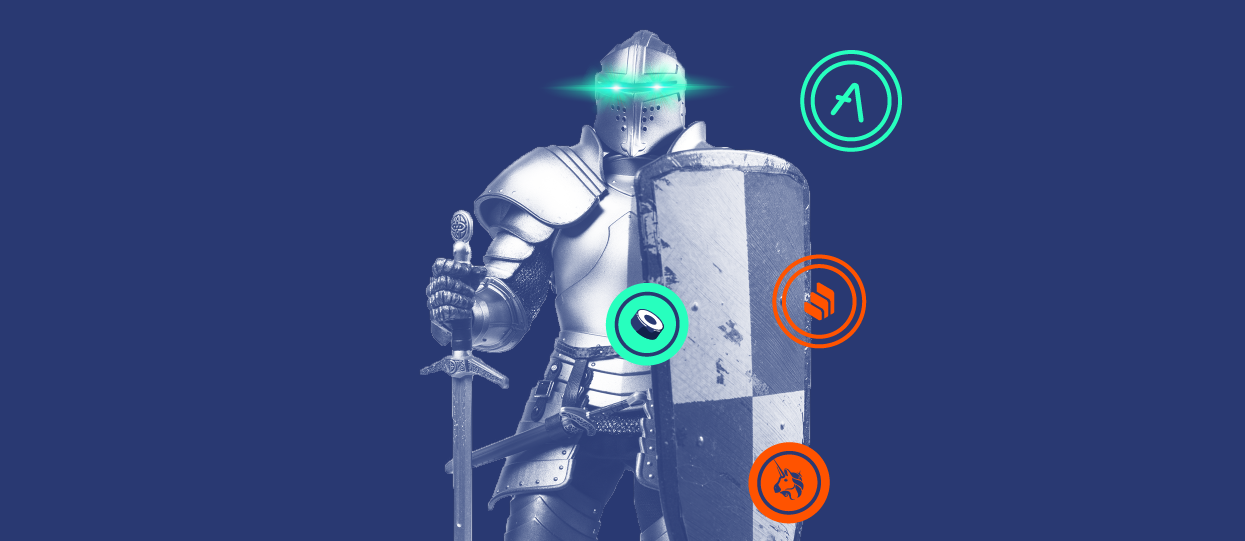Episode 33 of Public Key, the Chainalysis podcast, is here! We talk with Nick Cannon (VP of Growth, Gauntlet) in this episode. Nick gives us unique insights about the risks of DeFi, including liquidity issues that were noticed with Terra and FTX and vulnerabilities in recent DeFi hacks.
You can listen or subscribe now on Spotify, Apple, or Audible. Keep reading for a full preview of episode 33.
Public Key Episode 33 preview: Identifying Risks and Liquidity Issues in DeFi
The last 2 months of the cryptocurrency industry has been filled with DeFi Hacks, crypto exchange collapses and industry wide fear, uncertainty and doubt. But what if some of that uncertainty could have been proactively identified and some of the risks mitigated?
In this episode, Ian Andrews (Chief Marketing Officer, Chainalysis) sat down with Nick Cannon (VP of Growth at Gauntlet). They talk about Gauntlet’s financial modeling platform that uses techniques from the algorithmic trading industry to improve DeFi protocol risk management.
Nick shares how Gauntlet has helped DeFi pioneer, Aave, improve protocol revenue without taking on additional risk and how they were early to recommend customers not accept tokens like Terra’s UST and FTX’s FTT tokens.
Quote of the episode
“For over-collateralized lending protocols like Aave, Compound and Maker. They’re the first ones to get paid back by FTX or Three Arrows Capital or you know, these where the counterparty risk is starting to show its head. And they actually have been, because they’re incentivized to do so, or they’ll lose more money if they don’t.” – Nick Cannon, (VP of Growth, Gauntlet)
Minute-by-minute episode breakdown
- (2:45) – What is Gauntlet Network and how do they support the DeFi ecosystem
- (8:39) – Using historical data to determine liquidation risks for projects
- (11:01) – Taking into a DeFi protocols risk appetite when creating a risk assessment and exposing vulnerabilities
- (16:05) – How the transparency of DeFi protocols helps protect against major crypto collapses like FTX and Three Arrows Capital
- (18:51) – Unraveling the Mango Market vulnerability and how Gauntlet assess the DeFi protocol’s risk
- (22:55) – Analyzing Token Quality when creating holistic risk assessments on the Gauntlet Platform
- (24:46) – Why Proof of Reserves may not tell the whole story and how we can improve the crypto exchange audit process
Related resources
Check out more resources provided by Chainalysis that perfectly complement this episode of the Public Key.
- Blog: Post FTX Market Updates
- Blog: Impact Measurement: Aave – A Case Study
- Medium: Gauntlet Blog Website
- Website: Gauntlet uses battle-tested techniques to inform on-chain protocol management
- Blog: Chainalysis Storyline is Here: Transparency and Clarity for Web3
- Webinar: Intro to Storyline: A Two-Part Series: Understand, Investigate, Communicate DeFi Transactions
- Website: Aera: The world’s first autonomous, data-driven treasury management protocol
- Twitter: Chainalysis Official Twitter Page
Speakers on today’s episode
- Ian Andrews * Host * (Chief Marketing Officer, Chainalysis)
- Nick Cannon (VP of Growth, Gauntlet)
This website may contain links to third-party sites that are not under the control of Chainalysis, Inc. or its affiliates (collectively “Chainalysis”). Access to such information does not imply association with, endorsement of, approval of, or recommendation by Chainalysis of the site or its operators, and Chainalysis is not responsible for the products, services, or other content hosted therein.
Our podcasts are for informational purposes only, and are not intended to provide legal, tax, financial, or investment advice. Listeners should consult their own advisors before making these types of decisions. Chainalysis has no responsibility or liability for any decision made or any other acts or omissions in connection with your use of this material.
Chainalysis does not guarantee or warrant the accuracy, completeness, timeliness, suitability or validity of the information in any particular podcast and will not be responsible for any claim attributable to errors, omissions, or other inaccuracies of any part of such material.
Unless stated otherwise, reference to any specific product or entity does not constitute an endorsement or recommendation by Chainalysis. The views expressed by guests are their own and their appearance on the program does not imply an endorsement of them or any entity they represent. Views and opinions expressed by Chainalysis employees are those of the employees and do not necessarily reflect the views of the company.
